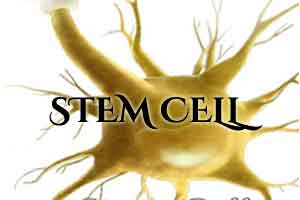- Home
- Editorial
- News
- Practice Guidelines
- Anesthesiology Guidelines
- Cancer Guidelines
- Cardiac Sciences Guidelines
- Critical Care Guidelines
- Dentistry Guidelines
- Dermatology Guidelines
- Diabetes and Endo Guidelines
- Diagnostics Guidelines
- ENT Guidelines
- Featured Practice Guidelines
- Gastroenterology Guidelines
- Geriatrics Guidelines
- Medicine Guidelines
- Nephrology Guidelines
- Neurosciences Guidelines
- Obs and Gynae Guidelines
- Ophthalmology Guidelines
- Orthopaedics Guidelines
- Paediatrics Guidelines
- Psychiatry Guidelines
- Pulmonology Guidelines
- Radiology Guidelines
- Surgery Guidelines
- Urology Guidelines
Umbilical cord stem cells show promise as heart failure treatment

A heart failure treatment using umbilical cord-derived stem cells may lead to notable improvements in heart muscle function and quality of life, according to a new study published in Circulation Research, an American Heart Association journal.
"We are encouraged by our findings because they could pave the way to a non-invasive, promising new therapy for a group of patients who face grim odds," said study corresponding author Fernando Figueroa, M.D., professor of medicine at the Universidad de los Andes in Chile.
In this trial, 30 patients, ages 18 to 75, with stable heart failure receiving optimal drug therapy underwent intravenous infusions with either umbilical cord-derived stem cells or placebo. The umbilical cords were obtained from full-term human placentas from healthy donors by caesarean section after informed consent.
Compared to the placebo treatment, the stem cell therapy:
- showed sustained and "significant" improvement in the hearts' ability to pump blood in the year following treatment;
- resulted in greater improvements on measures of daily functional status and quality of life; and
- was safe with no adverse effects or development of alloantibodies, a common immune complication in patients receiving organ transplants or blood transfusions.
Researchers have previously assessed the potential of bone marrow-derived stem cells as treatment; however, intravenous umbilical cord-derived stem cells have never been evaluated. The latter type has been particularly appealing because they are easily accessible, widely available, unlikely to cause immune complications and free of the ethical concerns that surround embryonic stem cells, the researchers noted.
"Standard drug-based regimens can be suboptimal in controlling heart failure, and patients often have to progress to more invasive therapies such as mechanical ventricular assist devices and heart transplantation," said lead study author Jorge Bartolucci M.D., a cardiologist from Cells for Cells and professor at the Universidad de los Andes.
Heart failure, marked by the heart muscle's inability to pump blood efficiently, affects some 37 million people worldwide. Despite medical advances, half of patients diagnosed with heart failure will die within five years of diagnosis, according to Figueroa. If affirmed in larger studies, these findings could provide a promising new treatment option for a condition that currently has few.

Disclaimer: This site is primarily intended for healthcare professionals. Any content/information on this website does not replace the advice of medical and/or health professionals and should not be construed as medical/diagnostic advice/endorsement or prescription. Use of this site is subject to our terms of use, privacy policy, advertisement policy. © 2020 Minerva Medical Treatment Pvt Ltd